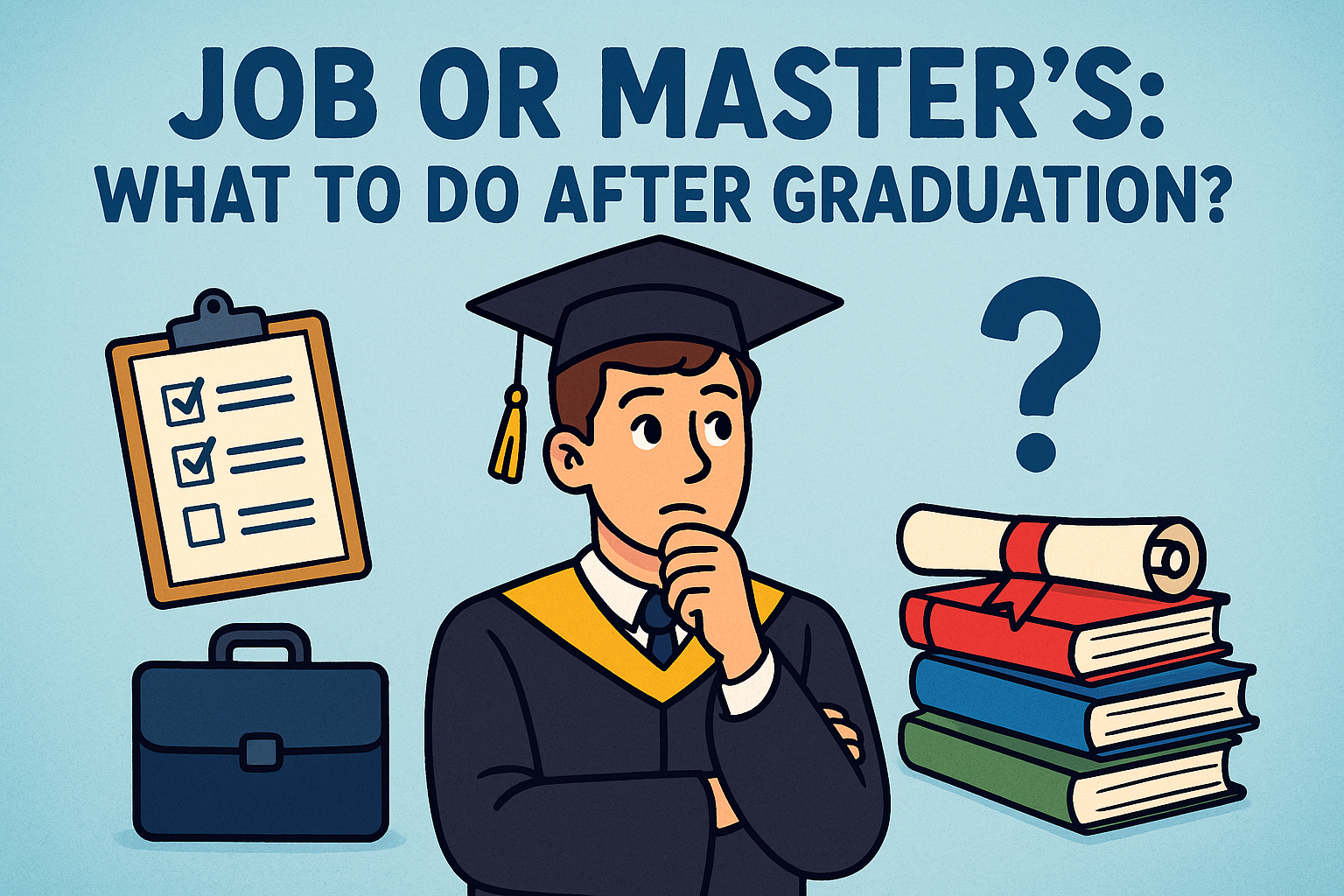The issue that is posed after college is the big question of every student: Should I begin work or continue with my studies? Both choices are valuable. Choosing campus employment or pursuing a master's is based on your career objectives, abilities, and circumstances. This guide will enable you to know the two paths to follow so that you can make a correct choice.
1. Campus Placements – Starting Your Career Early
After graduation, students can begin their careers through campus placements. According to Testbook, campus placements are the greatest choice for students who want to start making money and gaining experience immediately.
| Topic | Details |
|---|---|
| Meaning | A process where companies visit colleges to hire fresh graduates. |
| Best For | Students who want to enter the job market early. |
Advantages of Campus Placements
| Campus Placements Importance | Career Impact |
|---|---|
| Quick entry into the job market | Learn practical skills early |
| Financial independence | Build confidence and teamwork |
| Strong company-college network | Improves future job opportunities |
Disadvantages
- Limited job choices based on college reputation.
- Salary packages can vary widely.
- Harder to return to studies once you start working.
Campus placements are a good starting point for those who want to gain real-world experience before pursuing higher studies later.
2. Postgraduate Education – Learning Beyond Graduation
You can specialize in your industry and gain access to more advanced roles by pursuing a Master's degree, such as an MBA, M.Tech, or MS. Higher education aids students in developing deeper knowledge and long-term professional progress, as Mahalakshmi Tech Campus reveals.
| Topic | Topic |
|---|---|
| Meaning | Study beyond graduation to gain specialized knowledge. |
| Examples | MBA, M.Tech, MS, MA, M.Sc |
Advantages of Higher Studies
| Higher Studies Benefits | Career Impact |
|---|---|
| Deep subject knowledge | Opens global job opportunities |
| Better research and leadership skills | Leads to senior positions |
| Strong academic background | Increases long-term salary potential |
Disadvantages
- Include high tuition costs, particularly overseas.
- Preparation and competitive exams are required.
- Postponement of joining the workforce.
Students who enjoy learning, wish to specialize, or intend to relocate overseas in search of better employment prospects should pursue higher education.
3. Master's vs Job: How to Choose Wisely
Your choice should depend on your goals, financial readiness, and interest in learning.
Here’s a quick comparison:
| Decision Factor | If You Choose a Job | If You Choose a Masters |
|---|---|---|
| Financial Situation | Start earning immediately | Invest money for long-term gain. |
| Learning Type | Learn through work | Learn through study and research. |
| Career Growth | Gradual, experience-based | Faster in specialized roles. |
| Skill Development | Practical skills | Technical and analytical skills. |
| Flexibility | Early work experience | Academic exposure and networks. |
A balanced approach is to work for a year or two, understand the job market vs education demand, and then decide whether to pursue a master’s.
4. Job Market vs Education: Finding the Right Balance
Both the job market and education play an important role in building a strong career after graduation. Employers today look for graduates who combine degrees with real-world skills.
| Parameter | Job Market Focus | Education Focus |
|---|---|---|
| Immediate Benefit | Salary and experience | Specialized knowledge |
| Long-Term Benefit | Job stability | Career growth |
| Key Skills | Communication, teamwork, and adaptability | Technical, research, analytical |
| Current Trend | Skill-based hiring | Degree plus skill advantage |
The best approach is to focus on skill development after graduation, whether you choose to work or continue studying.
5. Key Tips Before You Decide
- Determine your long-term objectives and professional interests.
- Verify your postgraduate course possibilities and college placement rates.
- To obtain experience, pursue certificates or internships.
- Keep abreast of developments in the labour market and in higher education.
- To make better decisions, consult career gurus or mentors.
FAQs
1. Should I go for a master's or placements?
ANS. Depending on your objectives and professional development, pick a master's degree in a specialty and an experience placement.
2. How do I choose between higher education and placements after graduation?
ANS. Compare your interests, financial goals, and skills to make a smart campus placement decision.
3. What are the main benefits of higher studies after graduation?
ANS. Higher studies benefits include better specialization, stronger job profiles, and higher earning potential.
4. Is postgraduate education better than starting a job immediately?
ANS. Postgraduate education offers long-term growth, while jobs build real experience; balance both for success.
5. How do campus placements impact a graduate career path?
ANS. Strong college placement rates and company exposure shape early skills and future career after graduation.
6. What skills should I focus on after graduation?
ANS. Continuous skill development after graduation helps adapt to the job market vs education trends.

